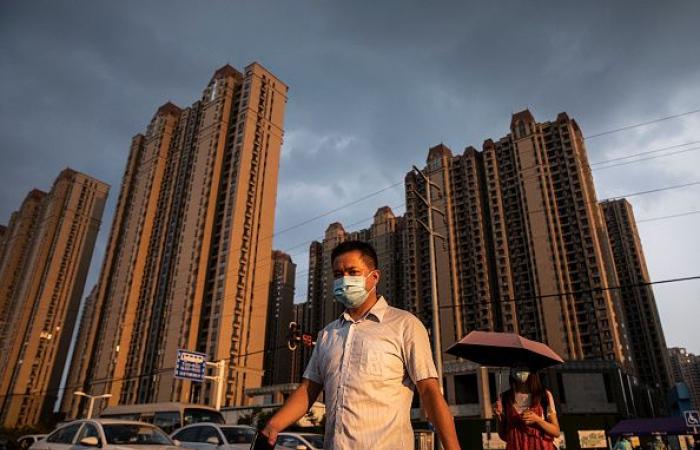Could China’s housing crisis get worse? This question has been asked by experts in recent days, following less than encouraging news. The already problematic developer Country Garden this week reported late payment of interest on a bond and Vanke had its credit rating downgraded to “junk” by Moody’s on Monday (13). The biggest fear is that the two will soon join the once giant Evergrande, which is in liquidation.
This is all amid statements from China’s housing minister that the government will stick to its decision not to bail out the country’s embattled real estate developers.
“Real estate companies that are seriously insolvent and have lost their operational capabilities should go bankrupt and be restructured in accordance with the principles of the rule of law,” Ni Hong said at a press conference last week.
Masterclass
The Most Promising Stocks on the Stock Exchange
Download a list of 10 Small Caps stocks that, in experts’ opinion, have appreciation potential in the coming months and years, and watch a free class
Sum of problems
In fact, the Chinese real estate crisis has been going on for years and has both structural and cyclical aspects, according to a study by Swiss Re. There were both cyclical factors – such as the slowdown in income growth during the Covid-19 pandemic – and structural factors, including the reduction in the working-age population, declining investment returns and slower productivity growth.
The business model of Chinese developers is to pre-sell homes, a risky strategy, but one that worked well during the good times when the country grew at rates of more than 10% per year and with abundant credit.
With companies heavily leveraged, the global interest rate hike cycle of 2022-2023 triggered several defaults in China, especially on dollar-denominated debt, including part of large real estate developers.
Continues after advertising
The effects are immense: it is estimated that there are hundreds of thousands of Chinese who bought houses and apartments from these developers and now have no idea whether the projects will be completed. Images of large skeletons of buildings are frequent in the local and global press.
Crisis of confidence
The crisis hit the confidence of families and companies, hampering internal growth and increasing the risk of a liquidity trap. “The spillover effects on the economy resulted mainly from the drop in investment and consumption, which is estimated to affect around 24% of the value chains related to the real estate sector that make up GDP”, says the Swiss Re report.
The global insurer estimates a reduction in investment in the Chinese real estate sector by 0.5 percentage points and 0.7 pp of GDP in 2024. This is for a forecast of annual economic growth of 4.5%.
Still, experts believe the risk of systemic default is limited, given the debt structure of the real estate sector and the government’s efforts to help deleveraging in recent years.
Outstanding debts of property owners and developers peaked in 2020. In the third quarter of 2023, they had already decreased to 30.8% and 13.0% of GDP, respectively. And lower rates globally should also ease financial pressures.
Government hand
Even though it does not want to send the message that they can help speculators, the government has moved to look for solutions. The recent work report presented at the “Two Sessions” meeting called for accelerating the promotion of what was called “a new model of real estate development”, state news agency Xinhua highlighted.
This intention comes in addition to measures adopted last year, which included favorable mortgage conditions, lower interest rates and tax benefits, all to try to reinforce confidence and neutralize risks in the sector.
This year, China promises to focus on planning and building affordable housing and advancing the construction of public infrastructure and the renovation of 50,000 old urban residential communities.
More than 100,000 kilometers of underground pipelines for gas, water, sewage and heating must be modernized. The government believes that these measures will increase demand for the real estate sector.
Specifically regarding Vanke, Sok Yin Yong, fixed income analyst for Asia at Julius Baer, believes it is not in the government’s interest to let the company fail. He highlights that the company has strong links with the wealthy coastal province of Shenzhen and that there is an official forecast that funds managed by the local government will increase by 0.1% this year, driven by land sales.
“We will therefore not be surprised to see a state-led rescue for Vanke. It is in the government’s interest to ensure that some developers, especially the biggest and strongest ones, survive this housing crisis to help achieve the revenue target.”






